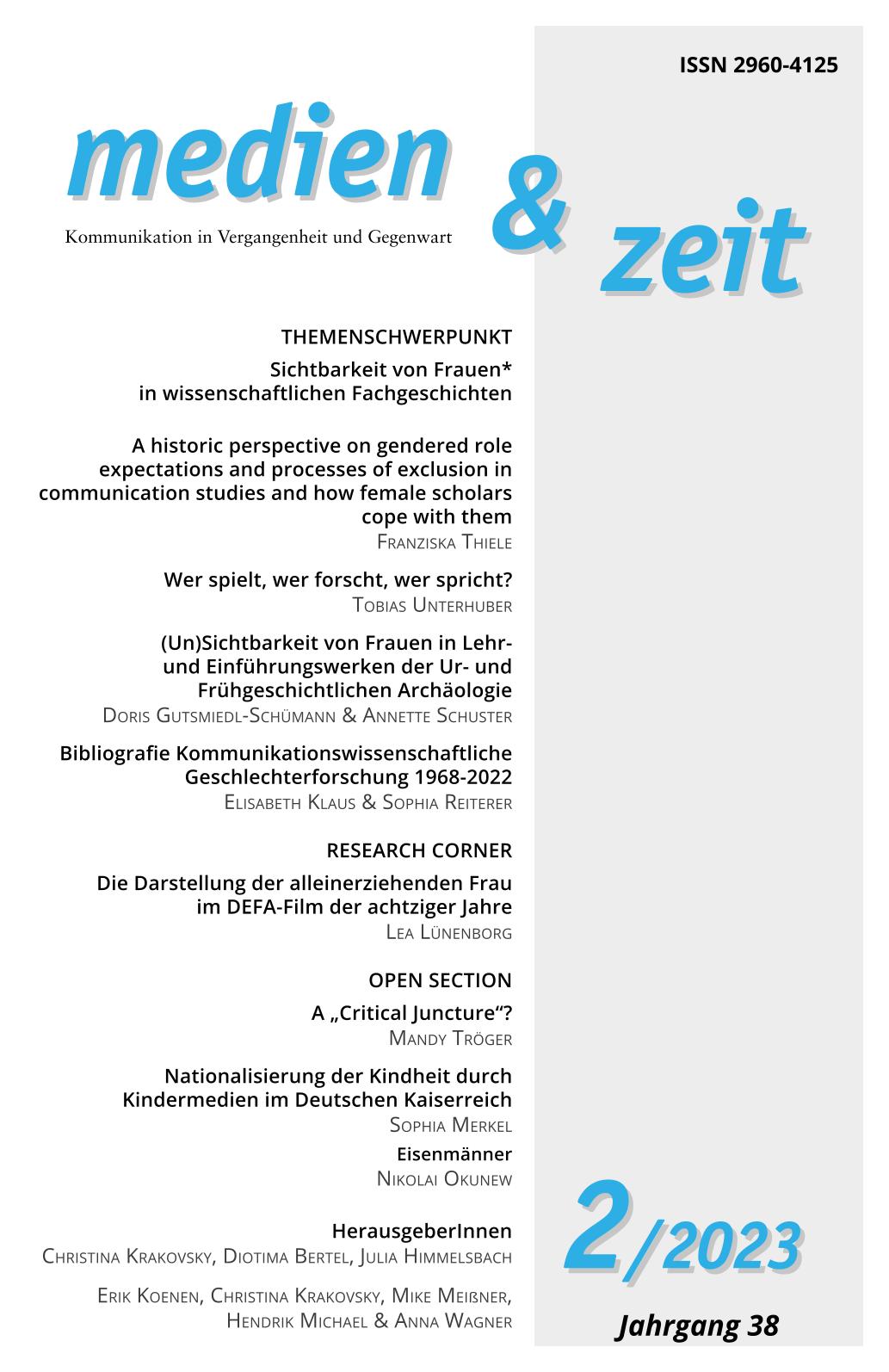A historic perspective on gendered role expectations and processes of exclusion in communication studies and how female scholars cope with them
Keywords:
Gender, inequality, role expectations, coping strategies, communication studies, mainstream, BourdieuAbstract
Research on the field of communication studies suggests that unequal treatment of women can be found and that it is the result of gendered role expectations that have transcended generations. Their longevity implies that they are reproduced in the disciplinary habitus, which defines a mainstream from which certain content and agents are excluded (Bourdieu, 1984). The goal of this paper is to identify gender inequalities that are found in communication studies today and can be traced back to the very beginning of the discipline. They are analyzed in relation to role expectations and forms of exclusion as well as coping strategies connected to the disciplinary habitus. This work uses qualitative interviews with communication scholars as empirical data.
In the interviews gendered role expectations had strong effects in the area of teaching as well as networking at informal gatherings and choosing research topics, while forms of exclusion were found in connection to writing publications and women being talked over and ignored in face-to-face conversations. Coping strategies changed with generations, thus the field habitus changes as well.
Additional Files
Published
How to Cite
License
Copyright (c) 2024 Franziska Thiele

This work is licensed under a Creative Commons Attribution-NonCommercial-NoDerivatives 4.0 International License.
Public access to articles in the journal medien & zeit is free of charge, at no charge to authors, and is available to all readers under the Creative Commons Attribution-NonCommercial-NoDerivatives 4.0 license. The rights for the contributions belong to the respective authors (no apc).



